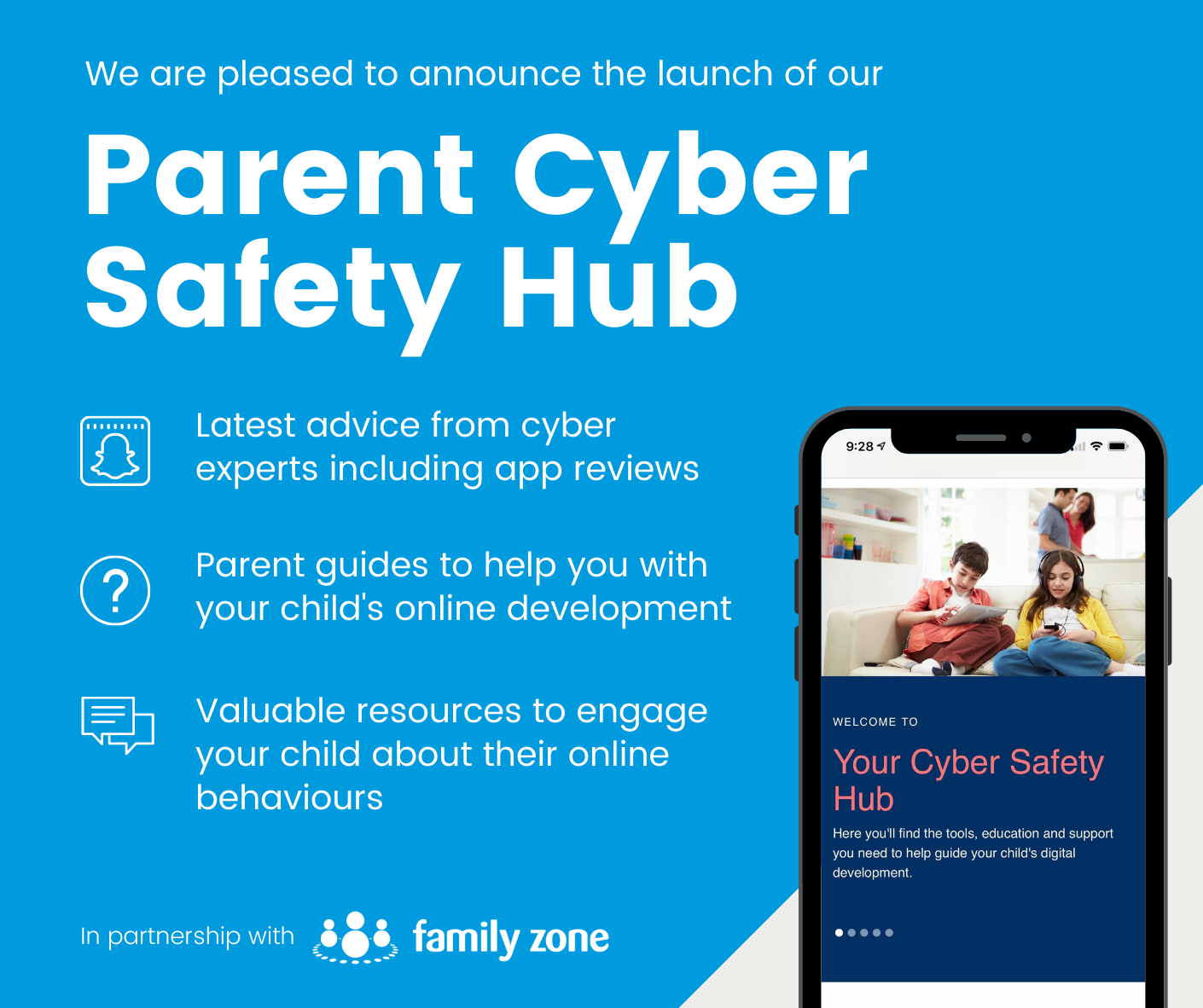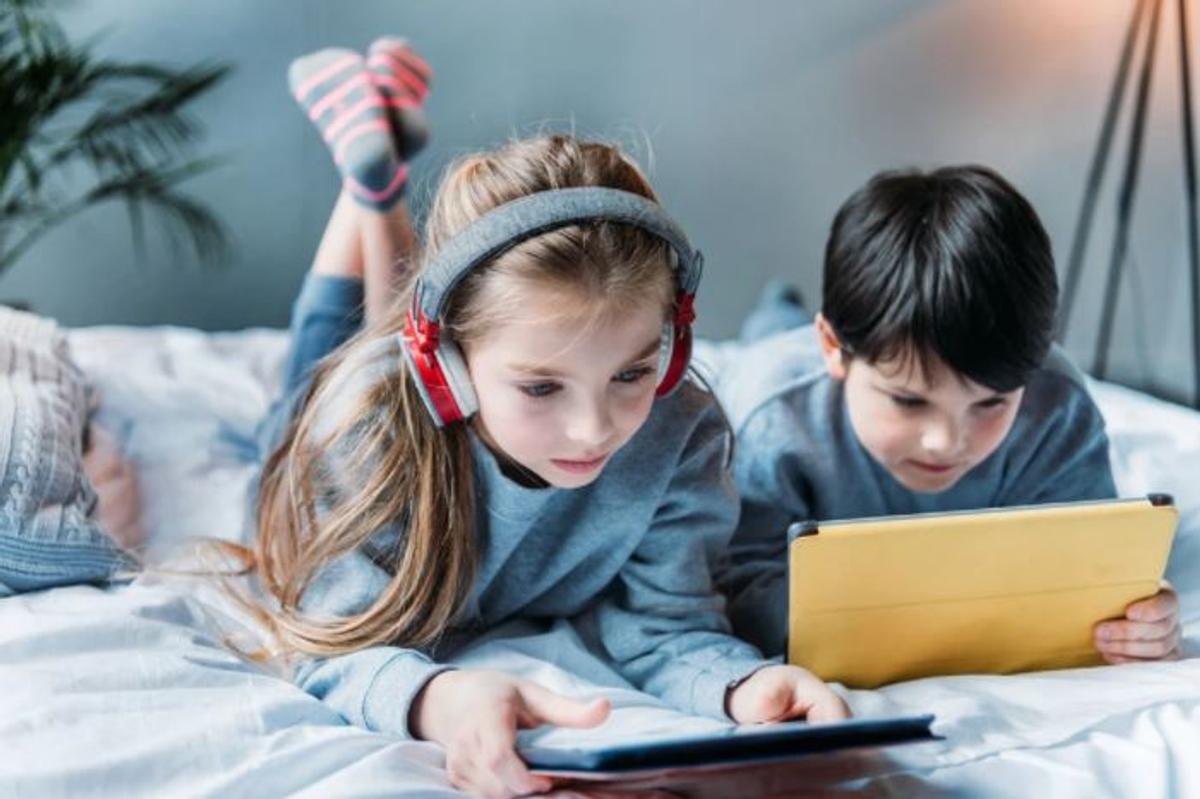Cyber Safety

Check out our Cyber Safety Hub
We are delighted to introduce you to a new resource made available to you through our partnership with Family Zone - our new school Cyber Safety Hub.
As you may already be aware, our partnership provides your family with access to the Family Zone tools to use at home with your children if you wish. The purpose of the Cyber Safety Hub is to complement those tools with practical guidance and information to further support you in engaging with your children in their digital development. These tools and resources also allow the school and parent body to work together on creating a holistic approach to guiding each student's online journey.
You can access the Cyber Safety Hub using the link below:
https://johnxxiii.cybersafetyhub.com.au/
About the Parent Cyber Safety Hub
The Cyber Safety Hub includes resources to help your family better understand the different Family Zone tools available to you and how to use them, plus access to regular cyber safety events to help you stay informed about the latest digital trends.
Also, the Cyber Safety Hub provides expert advice from leading cyber experts, ySafe, on the most pertinent issues and frequently asked questions around platforms like TikTok, Fortnite, Instagram, and more. There are app reviews with age and safety recommendations, along with a range of guides to help ensure healthy boundaries around screen-time & gaming, plus step-by-step instructions for using parental controls and filtering out inappropriate content.
We are very excited to be able to offer you this level of expertise and support. We look forward to working closely with you as we develop the cyber safety conversation within our school community.
Generation Alpha: What will their future be?
Do you have a child aged 11 or under? Here’s what you need to know about the habits and values of the generation born into the Age of Instagram - and the future they’ll face.
Demographer Mark McCrindle christens them Generation Alpha. In a new book of the same name, he argues that the cohort born since 2010 represents a distinct generational entity characterised by - surprise, surprise! - superior tech-savvy and declining social skills.
And it’s no coincidence both the iPad and Instagram debuted that same year too.
For parents of this generation of children, the struggle to protect kids from online harms - cyberbullying, porn, gaming addiction - presents unprecedented challenges.
At the same time, parents are well aware of the benefits of technology in the lives of their children. To advance formal learning. To prepare them for the future job market. To expand creative play.
Threats and opportunities
It’s this tension, say McKindle and co-author Ashley Fell - between the threats technology poses and the opportunities it presents - that creates confusion for parents.
How best to nurture the tech-savvy that will prepare them for the future of work, while also supporting kids to develop skills and appreciation for the “real” world?
And then there’s the worry about “up-ageing” - a trend that has seen kids maturing faster than previous generations based on their exposure to content formerly reserved exclusively for adults.
Online pornography is a key driver of that, with the average age of exposure now as low as eight or nine. But videos, social posts and games depicting violence, drug use and self-harm are also fuelling the up-ageing trend.
And then there’s the worry about “up-ageing” - a trend that has seen kids maturing faster than previous generations based on their exposure to content formerly reserved exclusively for adults.
But being exposed to adult material online is one thing. Achieving real-world maturity is quite another. Primary school kids who send one another nudes - and sadly it’s a growing problem in our schools - are a good example.
They are arguably no more “mature” than their parents or grandparents at that age but rather are simply apeing what they believe to be adult behaviour.
An unintended global experiment
This generation, says Fell, is part of an “unintended global experiment where they’ve had these screens from the youngest of ages.
“A lot of the parents we spoke to are scared their children are going to become addicted to devices, that they’re not going to have patience because of the instant gratification it brings.” Consequently, it’s a generation that “can’t sit still for long.”
“Then they’ve got bullying, which every generation has had to encounter, but now it’s online and it's harder to escape when you leave the school grounds – it comes home with you.”
Mental health will be another concern for Alphas, given the dominance of social media “comparison culture” and its devastating impact on rates of depression, anxiety and self-harm.
On the plus side, Generation Alpha will enjoy longer lives, greater material wealth, better education, and of course unprecedented access to information.
Yet they will risk “losing some of those more timeless skills that older generations really value” - including memorisation (no longer relevant in a world where Siri or Alexa is always within arm’s reach), face-to-face social skills and manual competencies (think house- and handyman-work).
Soaring environmental consciousness
At the same time, the social and environmental consciousness of this generation is likely to put their Millennial and Gen X parents to shame - especially around issues like climate change and sustainability.
Notes Fell, “They are going to grow up expecting to have a voice. They are not just a generation who is going to be dictated to – they are going to contribute.”
Reference: https://www.familyzone.com/anz/families/blog/the-future-of-generation-alpha



